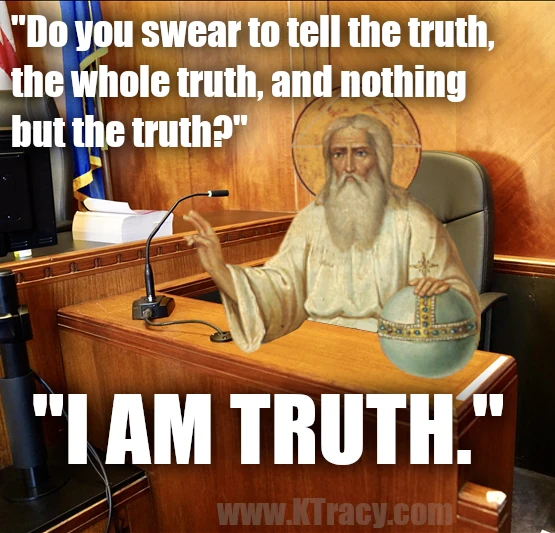Real Lawsuits against God and Satan
 So, I was sitting around watching paint dry (literally) and decided to pass the time by looking for a law suit regarding a personal political adversary of mine. I didn't find what I was looking for, but I did find this very interesting case that I wanted to share with you: Mayo v. Satan.
So, I was sitting around watching paint dry (literally) and decided to pass the time by looking for a law suit regarding a personal political adversary of mine. I didn't find what I was looking for, but I did find this very interesting case that I wanted to share with you: Mayo v. Satan.
Yes, that's the same Satan who is the fallen angel Lucifer who was thrown out of the grace of God in Heaven and left to rule Hell.
Gerald Mayo v. Satan and His Staff
Mr. Mayo had filed a civil rights action against Satan and his servants back in 1971 in a US District Court in Pennsylvania. Mayo alleged that Satan had "placed deliberate obstacles in plaintiff's path and caused his downfall, wherein plaintiff prayed for leave to proceed in forma pauperis." In other words, because Satan caused him to lose all his money, he felt as though he should not have to pay the legal fees for bringing about this law suit. The court disagreed for three reasons:
- The court lacked jurisdiction over the defendant (you know, Satan?)
- Questions over the property of class action
- Mayo failed to provide how Satan would be served
The actual obstacles Mayo listed in this lawsuit were "misery and unwarranted threats." Obviously this deprived him of his constitutional and civil rights.
What I thought was interesting, however, was that Judge Weber cited an "unofficial record" of a lawsuit where Satan appeared to be the plaintiff in New Hampshire. An hour of research later and I realized the "unofficial record" was the fictional short story The Devil and Daniel Webster by Stephen Vincent Benét. According to my research, Mr. Mayo is the only American who has tried to sue Satan.
To be fair, God has also been the target of legal action in the United States. In 2008, the then 70-year-old Nebraska State Senator Ernie Chambers (Independent) wanted an injunction on God because He was making "terroristic threats" against people, including his constituents. It's actually kind of humorous. "... or else I'm sending you to Hell" isn't that far away from a terrorist threat. Anyway, the case was thrown out. Again, in part, because there was no way for a US Marshall to serve God.
So that means God (nor Satan) can be sued... right?
Well, hold on a minute. There's a very interesting "the devil made me do it" lawsuit filed in Romania back in 2007, but it has an interesting twist that COULD possibly fly in the United States if there's ever a judge with too much time on his or her hands and, perhaps, a sense of humor. According to the Evenimentul Zilei, a Romanian media source, convicted murderer Pavel Mircea filed a lawsuit against God because the Devil made him kill his victim. Why is he suing God over what Satan did to him? Because the Baptism he received as an infant was, in essence, a contract in which God agreed to protect Mircea from Satan. But because Satan made him kill his victim, he is claiming that God broke His contract with Mircea.
Again, how does one serve God? Well, Mircea claims that God resides in Heaven, but is represented in Romania by the Orthodox Church. The Catholic and Orthodox Churches each claim to be the earthly representatives of God by being His Church. In essence, therefore, Mircea argues that the Church should be held responsible as God's representative. Unfortunately for Mircea, Romanian law only allows suits to be brought against individuals and companies or corporations. The Orthodox Church, not being an individual or corporation, cannot be served.
That's in Romania, however. In the United States, the Catholic Church (and perhaps a couple other churches) could conceivably be sued by an individual American in a similar situation as Pavel Mircea.
Granted, this lawsuit would still face significant challenges. The plaintiff would have to prove that it was actually "The Devil" who "made him do it." Additionally, from the point of view of the United States, the First Amendment has a non-establishment clause that prevents the Government from showing preference for any particular church or religion. Ironically, if such a lawsuit were allowed to be heard, it could be argued that the Government was showing preference and favorability towards the Catholic Church because they would be saying that Catholic Church is the legal representative of God in the United States of America.
At the very least, it would be more interesting than watching this paint dry.









